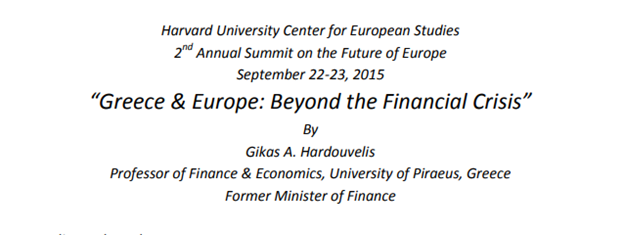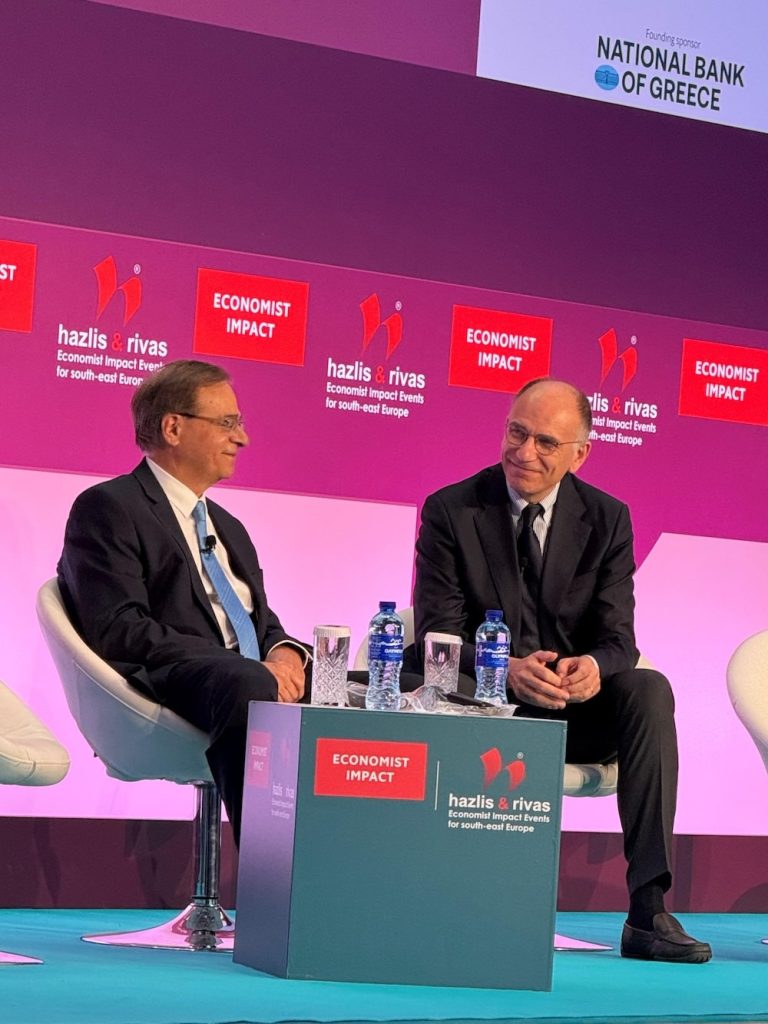Greece and Europe: Beyond the Financial Crisis
Author: Gikas A. Hardouvelis
Venue: Harvard University, Keynote Speech, Opening Ceremony of the 2nd Annual Summit on the Future of Europe, Minda de Gunzburg Center for European Studies of Harvard University
September 22, 2015
Abstract:
Ladies and gentlemen,
It is my pleasure to be back to my Alma Mater and its Center for European Studies and share with you my thoughts on Europe and Greece. I will concentrate on two main questions:
- Will the Euro Area survive the next economic crisis?
- Will Greece be a member of the Euro Area over the next decade?
The two questions, although they refer to the future, are intimately related. Some claim that if Greece were forced to abandon the Monetary Union, the irreversibility principle of a country joining EMU would be broken and subsequently the Union would begin unraveling. In the next crisis, markets would naturally ask the question: “Which country is next to go?” and would pick on the most vulnerable EMU member by dumping its stocks, stop lending it, etc., thus forcing it to quit EMU.
Others, however, insist that letting Greece exit would stabilize EMU. EMU cannot be a stable union without incorporating into its bylaws the risk of departure. The fear of departure would incentivize renegade members to behave constructively and avoid exit. Without such a fear, the case of Greece will soon find many copycats. For example, some countries would never reform or never obey the deficit limits of the Stability and Growth pact, and if rules are not obeyed, EMU would naturally dissolve.
The Greek drama of the last 8 months brought this point to the surface. For a number of months, the Greek left wing party of SYRIZA behaved as if Europe were scared of the country’s possible departure from EMU and would thus bend to its demands. In the end, SYRIZA failed in its strategy of bullying the rest of EMU, but it nevertheless taught the rest of Europe an important lesson: The Monetary Union should not again be in a position of being blackmailed by one of its members, who does not wish to obey the rules of EMU. So in my view, the risk of exit may soon be incorporated into the architecture of EMU.













